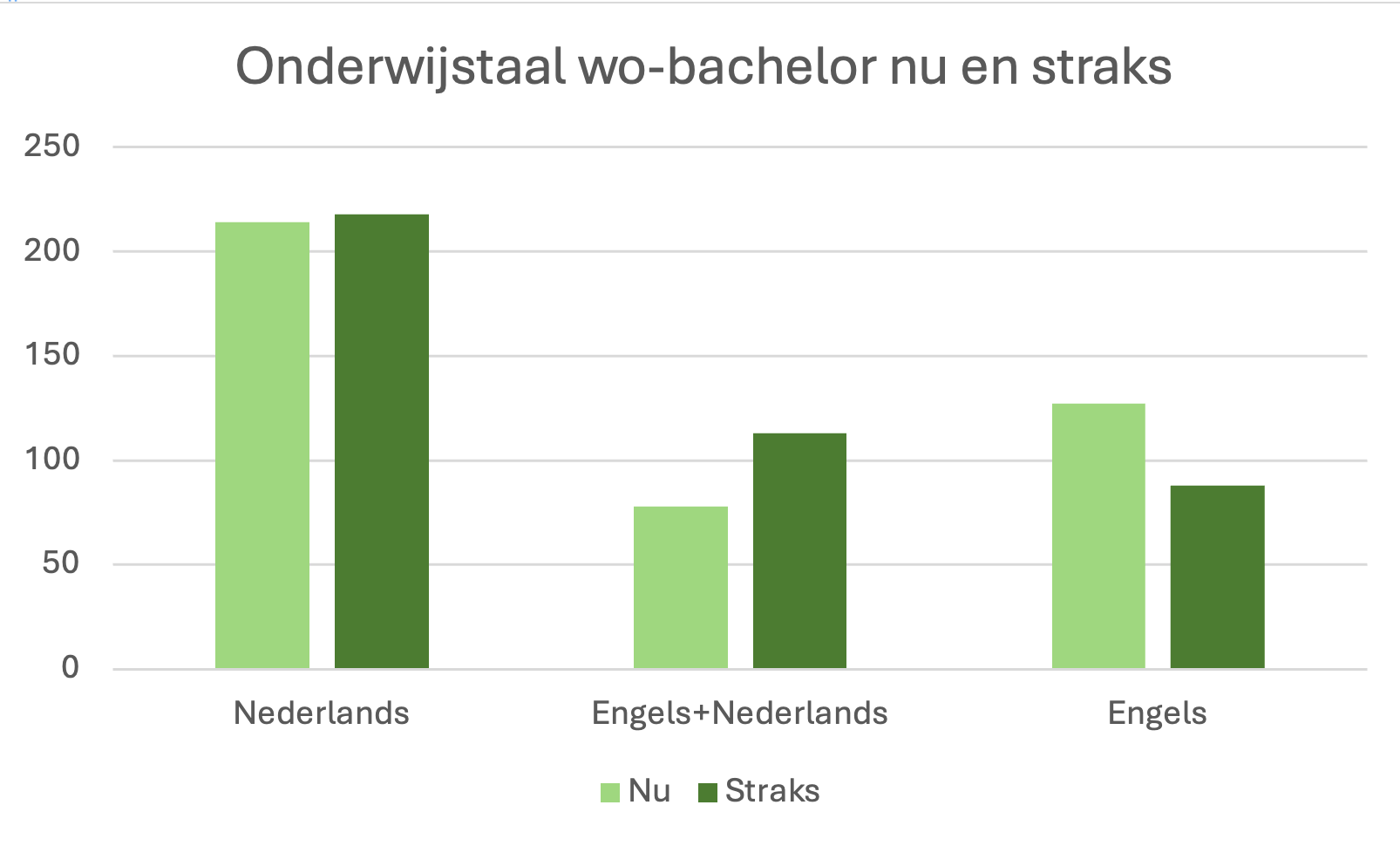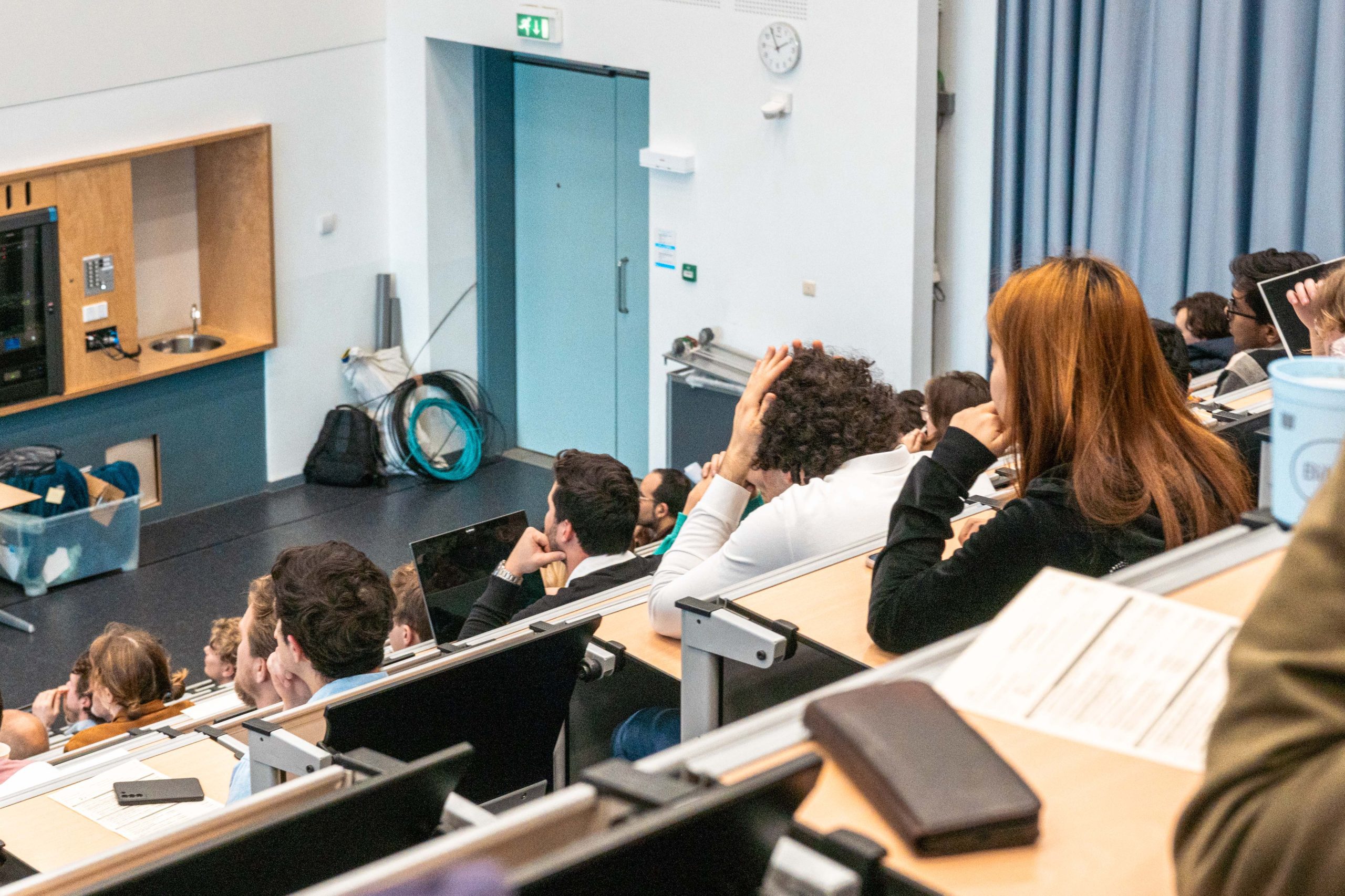Universities have promised to introduce a Dutch-language track into all 35 major Bachelor’s programmes. Another four programmes will be taught entirely in Dutch.
Lecture at the Faculty of Industrial Engineering and Design. (Photo: Thijs van Reeuwijk).
The introduction of a Dutch-taught variant will affect many Bachelor’s programmes in Economics as well as Science and Technology in particular, according to details of the plans published by university association UNL on its website.
But that is not the case at the TU Delft, which offers four English-taught Bachelor’s programmes: aerospace engineering, applied earth sciences, computer science and engineering and nanobiology. In February, Delta mapped the plans for these four and came to the conclusion that ‘Aerospace engineering (Faculty of Aerospace Engineering, AE) is the only programme where something is really about to change now.’ But a recent enquiry with Joris Melkert, LR’s education director, reveals that there are ‘as yet no plans to offer a Dutch BSc programme. “We are of course keeping a close eye on political developments in this area,” he adds. In short, there will be no extra Dutch-language bachelors at Delft this year.
Anticipation
Universities want to decide for themselves what is the appropriate action to take when it comes to internationalisation and the influx of international students. This is in anticipation of a bill that Education Minister Robbert Dijkgraaf is currently drafting and which will shortly go to the House of Representatives.
Separate plans for each university have yet to be finalised, despite being requested by the House of Representatives. In addition, UNL is keen to exercise caution, given the fact that the universities’ representative advisory bodies have yet to signal their agreement.
Nonetheless, if all goes well, 12 Bachelor’s programmes in Economics that are currently taught entirely in English will get a Dutch-taught track, alongside the English-taught variant. Only seven of them will remain entirely English-taught.
Of the Bachelor’s programmes in Science and Technology, 13 have plans to introduce Dutch-taught tracks, leaving 16 Bachelor’s programmes being taught entirely in English.
Advantage
Bachelor’s programmes that are taught in two languages will enjoy a significant advantage in that they will be able to limit the influx of international students into the English-taught track, while accessibility to the Dutch-taught variant is ensured at all times.
The universities do indeed intend to introduce an enrolment quota of this type for the English-language track of 27 Bachelor’s programmes, of which 14 are in Behavioural & Social Sciences and 6 in Economics.
HOP, Bas Belleman | Vertaalcentrum VU

Do you have a question or comment about this article?
redactie@hogeronderwijspersbureau.nl


Comments are closed.